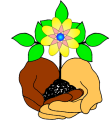By Leah Lemieux
Over the long Easter weekend, I decided to visit my wild bird friends by the lake in Albert Park. To celebrate, I brought some tasty raw nuts for my friends and something special.
The family of magpies, attended by the usual pair of magpie larks and noisy miners greeted me and enthusiastically accepted the nuts and morning greetings I offered. After the magpies had their fill, my two favourite ravens came over to see me. They are both very large for little ravens and were the first birds to accept my overtures at friendship, so they always hold a very special place in my heart. They are very beautiful and I always tell them so and admire their grace, humour and beauty.
Because it was Easter, I brought them a very special treat--a hard boiled egg. I rolled it over to the male raven (who I affectionately think of as Karasu, which is Japanese for crow). Now, I know, in the bird world, no one ever hands over an egg--rather they are guarded carefully. So Karasu looked like he couldn't believe his eyes. Other members of the flock (around 15 or so of different ages) looked on with interest. I insisted this gift was for him and his mate to have. Finally, he stepped forward, keeping an eye fixed on me and tested the egg's weight and consistency with his bill. I wondered if he would spirit it away to cashe some place and eat it all himself, or share with his mate.
Instead, he did something amazing.
Taking the egg in his bill, he leapt into the air, stroking powerfully up to about 20 feet up and then he threw the egg down on the turf. The egg exploded into many pieces and then the whole flock of ravens settled down happily to the Easter feast--it was fantastic! It was lovely to see that enjoying the gift I brought them was all about sharing the special treat with the group.
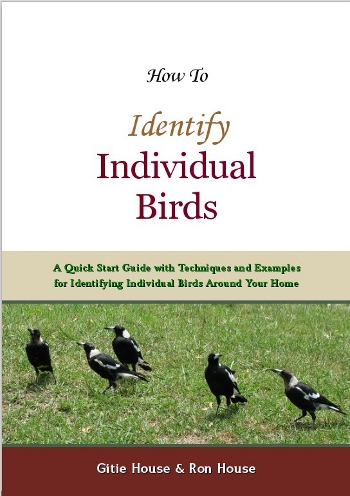
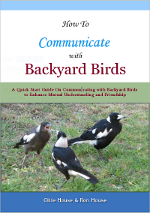
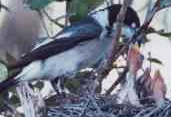



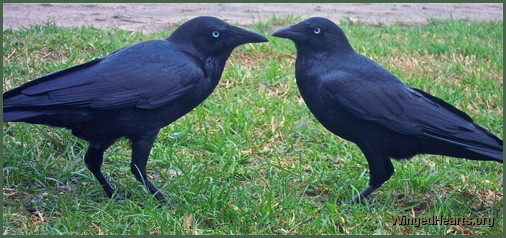
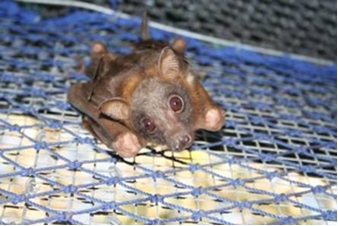 This little fellow was found hanging on a fence post by a farmer at Taroom in western QLD. He took him home and looked after him for 5 days, during which time the bat actually gained weight. The farmer’s aged parents were heading to Toowoomba (a 6 hour drive) and kindly took him with them. Carer Peter met them in Toowoomba and brought him home to join the other little reds. He is completely uninjured, so why he was quietly hanging on a fence post is a bit of a mystery. Anyway, a big thank you to Peter Mundell from Taroom!
This little fellow was found hanging on a fence post by a farmer at Taroom in western QLD. He took him home and looked after him for 5 days, during which time the bat actually gained weight. The farmer’s aged parents were heading to Toowoomba (a 6 hour drive) and kindly took him with them. Carer Peter met them in Toowoomba and brought him home to join the other little reds. He is completely uninjured, so why he was quietly hanging on a fence post is a bit of a mystery. Anyway, a big thank you to Peter Mundell from Taroom!

